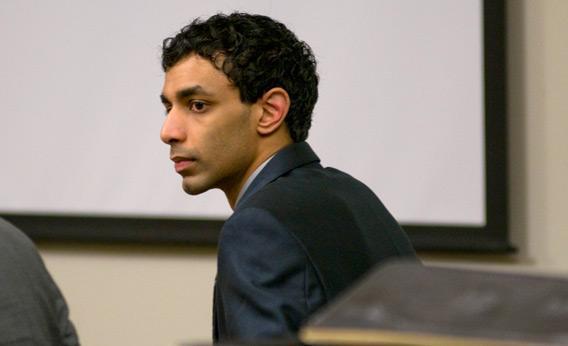My colleague Emily Bazelon has an op-ed in the New York Times today that takes on the issue—by way of the Dharun Ravi verdict that was delivered last Friday—of just how expansive the definition of “hate crime” should be. After affirming that Ravi deserves a modicum of punishment for his spying on the late Tyler Clementi, Bazelon questions if the sentencing enhancement enabled by a “bias intimidation” charge can rightfully be applied to kids:
The idea of shielding vulnerable groups is well intentioned. But with the nation on high alert over bullying — especially when it intersects with computer technology and the Internet — these civil rights statutes are being stretched to go after teenagers who acted meanly, but not violently. This isn’t what civil rights laws should be for.
Bazelon’s legal argument is compelling, but there’s an even larger cultural issue at play when discussing just what exactly counts as a hate crime. Everyone agrees that Ravi’s actions were boorish and grossly insensitive, but, in large part because he did not testify, we don’t know what Ravi thinks about homosexuality in his heart-of-hearts (just as, in the final analysis, we don’t really know why Clementi jumped from that bridge). Still, based on the evidence that we do have, the image of Ravi as a malicious homophobe getting his just deserts looks dubious at best, and our eagerness to cling to that simplification betrays an anxiety surrounding issues of bullying and culpability that we’d like to assuage as quickly as possible, even if it means locking up an misguided young man for a decade or more.
At the core of the hostility toward Ravi—and indeed, of our present preoccupation with bullying more generally—is the question of motive. How could an intelligent, seemingly affable teenage boy be so cruel to a peer? The easy answer is to diagnose a disorder, a “phobia” that drove him to act with such frightening recklessness. But as communication scholar Mary L. Gray has pointed out in the Huffington Post, homophobia isn’t located in individual people—it’s a disease of the culture at large, a vocabulary of acts and words that is used for all kinds of ends beyond just hurting individual gay people.
Ian Parker’s exhaustive New Yorker article on the case suggests that Ravi’s relatively mild and often half-hearted forays into homophobic speech were almost certainly designed for self-promotion rather than as vicious attacks against any individual:
Ravi certainly appears to have cared a lot more about the reputational value of gossip than about Picone’s [another gay Rutgers student] sexuality. (In witness statements taken for the Clementi case, nobody has recalled Ravi being contemptuous of gay people.) If this helps protect him from the charge of extreme prejudice, he might still be accused of lacking empathy: there’s no sign that he was inhibited by the fear that he might cause his roommate embarrassment, or annoyance, by discussing him on Facebook and Twitter.
Now, let’s be clear: I nor Parker nor anyone else uncomfortable with the handling of this case is excusing Ravi for his actions. He clearly violated Clementi’s privacy and should be punished for that. But the impulse to paint Ravi as some kind of unprecedented, hate-driven monster is a cop-out, considering that his brand of homophobic posturing is pervasive in our culture. Exiling him to prison won’t absolve us of our complicity in that fact, and it won’t heal the lack of empathy that Parker mentions.
We live in a world that validates adult bullies all the time. The only difference is that teens don’t have the resources or access to apply the veneer of acceptability to their bullying in the form of press releases, presidential campaigns and entire “news” networks. Empathy is learned, but adults are not teaching it to teenagers. Instead, they learn that specific kinds of bullying—especially homophobic swagger—are a strong currency with which to purchase attention and prowess. Some have argued that the Ravi case offers the opportunity to “send a message.” But what should it say? That expressing the kinds of bias that respected politicians and celebrities use to enhance their fame every day will get you demonized, even while they receive praise? That acting in a way that our society trains kids to act is suddenly beyond the pale?
Unfortunately, we can’t lock the bully up, because the bully is in all of us. Dharun Ravi should be reasonably punished for his concrete crimes—preferably in a way that instills the empathy he obviously lacked—but he should not be crucified for a “meanness” that is sadly all but inherent to our culture. That will only serve to cheapen true, violent, targeted crimes of hate and to waste another life in a case where one lost is already far too many.
